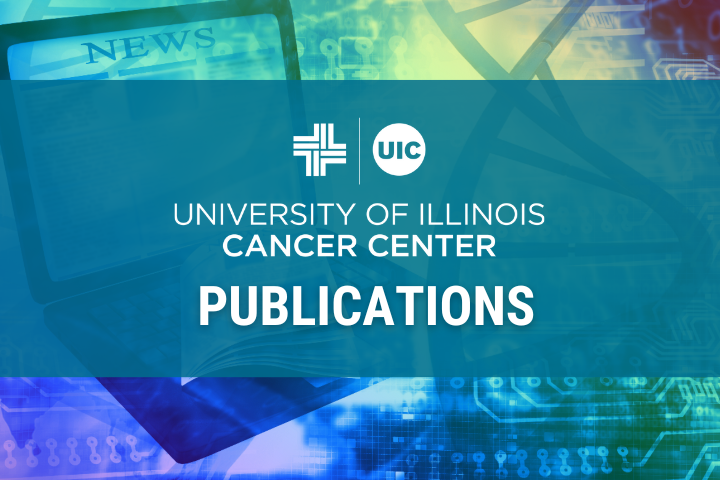
Findings of a new study by University of Illinois Cancer Center members link vitamin D deficiency and the megalin protein to increased levels of prostate androgens, which may underpin the disparity in lethal prostate cancer in African American men.
African American men are more likely to be diagnosed and die from prostate cancer, a disparity that persists even when controlling for a multitude of confounding factors.
Cancer Center member Larisa Nonn, PhD, Professor of Pathology at the University of Illinois College of Medicine Chicago, is corresponding author of the study, “Regulation of prostate androgens by megalin and 25-hydroxyvitamin D status: Mechanism for high prostate androgens in African American men,” published this month in the journal Cancer Research Communications.
Other University of Illinois Cancer Center member authors of the study, are Donald Vander Griend, PhD, Associate Professor of Pathology; Gail Prins, PhD, Professor of Urology; and Maarten Bosland, PhD, DVSc, Professor of Pathology, all of the College of Medicine. Peter Gann, MD, ScD, Professor Emeritus of Pathology, is a Cancer Center affiliate.
Prostate Cancer and Vitamin D
The study used prostate tissue and serum from patients, cell lines and mice.
“In conclusion, our in vitro, in vivo and ex vivo data show that megalin is functional in the prostate, transporting SHBG-bound T into the cell, which complicates the free hormone hypothesis. We also show that megalin expression is negatively regulated by vitamin D, and, in times of vitamin D deficiency, megalin is upregulated, potentially increasing the import of SHBGT. This may signify a once-protective compensatory mechanism of vitamin D gone awry, which increases the likelihood of androgen import and increases the probability of harmful androgen actions that may contribute to the disparity in prostate cancer aggressiveness that plagues African American men,” the authors explained.
Nonn and Vander Griend also are part of the Cancer Center leadership team, with Nonn serving as Associate Director of Career Enhancement and Education, and Vander Griend as the Associate Director of Shared Resources. Gann is the former Associate Director of Shared Resources.
The study’s first author, Jason Garcia, PhD, a former member of Nonn’s lab, graduated from GEMS (Graduate Education in bioMedical Sciences), the PhD granting program for the College of Medicine. Garcia is currently a Senior Scientist at Abbott Laboratories.
